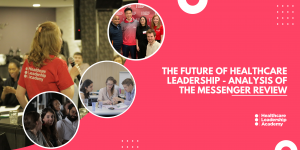In part 3 for our AFP series, we’re shining a spotlight on the challenging white space questions. Most Academic Foundation post deaneries, with the notable exceptions of London, Yorkshire and Humber, will offer the opportunity to submit white space answers. These are a chance for you to differentiate yourself, with or without prior research accolades. Candidates often find this aspect of the application challenging, as you’re required to show off your skills in very few words. Take a look at our recent article for some further tips on how to make every word count.
If you would like to save this article for later, you can download the PDF version here.
First of all…
Make sure you understand what the question is asking of you, and answer it! Take your time.
Be clear
Before the assessment, write down your “selling points”. As you write, reference them as much as possible. Return as much as you can to the themes of leadership, teaching, academic success and research, focusing on your individual strengths in each. It may be helpful for you to map out your key strengths before you begin writing, using your CV as a guide.
Take time to read the General Medical Councils’ Good Medical Practice guidance, which describes the qualities desirable in a junior doctor. Emphasise how you fulfil these criteria, and how you have worked to improve. If there is an achievement you are especially proud of, mention it early on in your response to set the tone of your answer and gain the reader’s attention. The person marking your answer will likely have just read many other applicants’ answers, so the more you can interest them when they start reading the better.
Be specific
Be specific when you write. For example, when writing about working as part of a team, what was your role? What did you personally do? Use ‘I’ not ‘we’ as you write. Also ensure you write in the active rather than passive voice. For example, instead of, “the conference is being organised by my committee,” write, “my committee is organising the conference”. The active voice is more engaging and makes comprehension easier.
Be reflective
With situational questions, where you are asked to describe a challenging event and your response to it, focus on showing your ability to reflect and learn. Emphasise your capacity to juggle medicine and research with effective time management and organisation.
Don’t forget to mention your intercalated degree and what you learnt during it if you have one, your student selected course components, elective, everyday hospital events and non-medical pursuits.
After you’ve submitted…
Ensure you have evidence of what you have put down. You may well be asked for it at a later date. An email confirmation, certificate or signed letter is sufficient.
Make sure you remember what you wrote, as you may well be asked about it at interview! Many people find it helpful to read back over their answers before their interview, so keep a copy of your answers.
How can Medics.Academy help me apply for the AFP?
Medics.Academy is dedicated to improving healthcare education. Helping the coming generation of doctors to succeed is a big part of our vision.
George Miller, the author of this article, created a course for the Medics.Academy platform to help you apply for the Academic Foundation Programme. George’s AFP application was ranked in the top 10% nationally. With his training, you can strengthen your written application and better prepare for interviews. Join our online final-year study group to share tips and gain a larger support network of like-minded medics.
Look out for our next article in the AFP series, in which we’ll discuss how best to prepare for an AFP interview.
About the Author
 Dr. George Miller is an Academic Foundation Doctor at Guy’s and St Thomas’ NHS Foundation Trust in London. While at medical school George gained 16 publications, presented over 20 national and international conference presentations and won 17 national and international awards for his work.
Dr. George Miller is an Academic Foundation Doctor at Guy’s and St Thomas’ NHS Foundation Trust in London. While at medical school George gained 16 publications, presented over 20 national and international conference presentations and won 17 national and international awards for his work.




